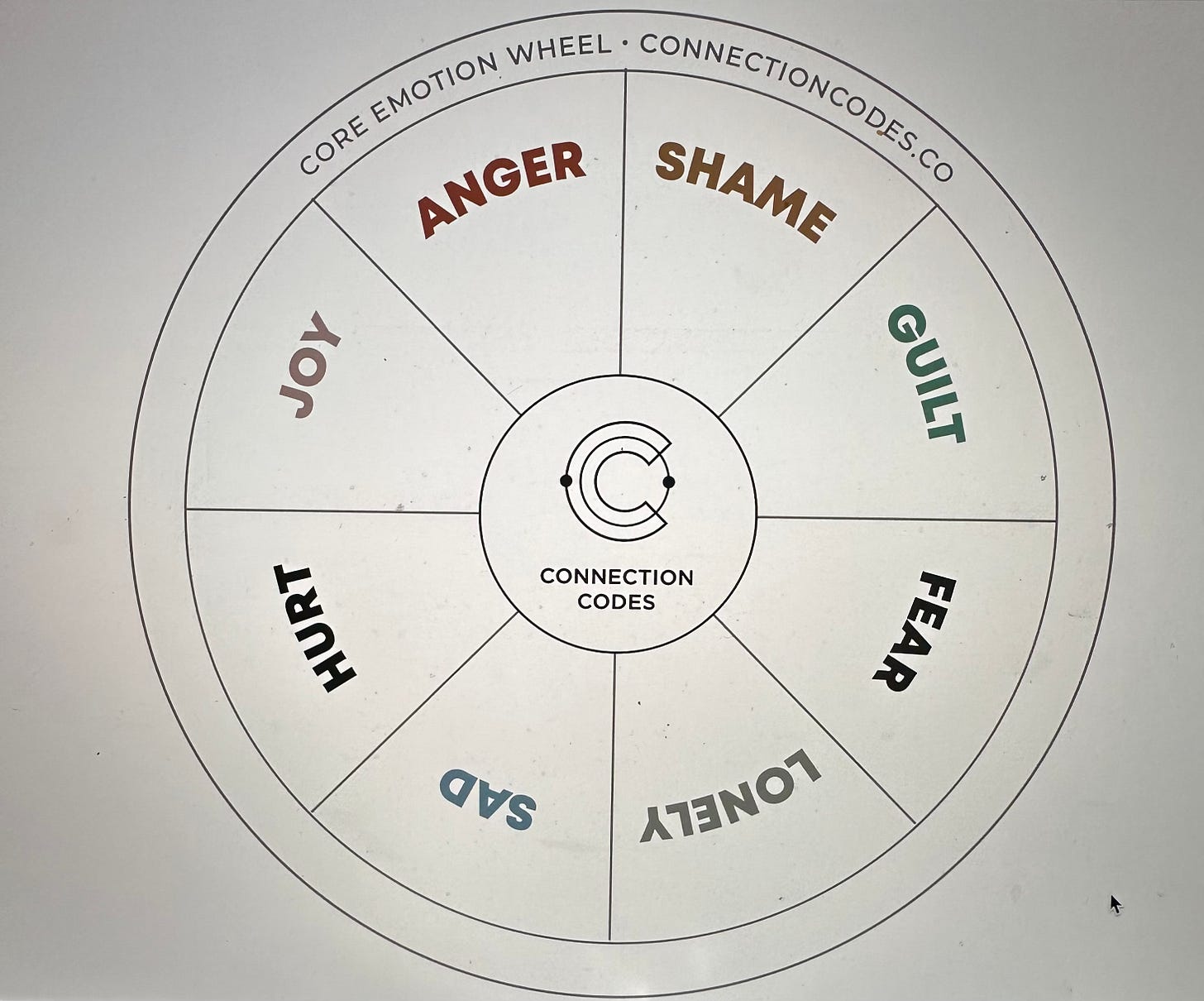Have you ever witnessed a miracle? The birth of a child? A supernatural healing? Your spouse saying sorry first? (I’m kidding on that one…I hope 🙄). I once had the privilege of seeing what felt like a miracle at the time—a couple experiencing difficulties connected on a heart level for the first time ever. The fact that the couple was floundering was not surprising. Their cultural differences and a significant age gap led the husband to conclude he had made a mistake in getting married. Divorce papers were filed (more to get her attention than anything), but the wife felt blindsided. She had trusted the promises of this seemingly honorable man and moved to a foreign country to become his wife and stepmother to his child. When I met this woman for the first time, it was immediately obvious that she was heartbroken; the pile of tissues she went through was evidence of her pain. Among other things, she felt significantly overlooked and hugely undervalued by her husband. As I listened to her heartache in three different counseling sessions, it was obvious that her pain went way back to childhood. Thankfully, the small breakthrough she received by expressing her emotions to me gave her the confidence to agree to a counseling session with her husband. That is when the miracle happened…
Let’s back up a bit before I describe what happened with this couple. For the past three weeks, I have been writing about the importance of having emotional connection in relationships. Indeed, humans are coded for relational intimacy. Psychiatrist and neurobiologist Curt Thompson writes in his book, Anatomy of the Soul, “Without emotion, life would come to a standstill. It is the means by which we experience and connect with God and others, and ourselves in the most basic way possible.” Thus, when we affirm or acknowledge what another person is feeling, they feel heard and valued. When we don’t (as happened with the aforementioned couple), relational intimacy is forfeited. And without intimacy—in-to-me-you-see—there is no meaningful connection. Having no emotional connection is what enabled this husband to file for divorce just to get his spouse’s attention; there was zero concern about what something like that would do to her heart. It’s easier to hurt a heart that you’re not connected to.
The goal of my session with this couple was to help them build relational intimacy by teaching them to use the language of emotion with as much safety as possible. Why safety, you ask? The reason is when you open your heart to another person, you risk being ignored, diminished, or devalued. That is a surefire way to close off communication and relational intimacy. Has that ever happened to you? Has anyone ever told you that you shouldn’t feel the way you do or somehow made you feel like your sadness, anger, or loneliness was too much for them? Many of us have had that experience in childhood (unless we had parents who understood how to build secure attachments with us.) Because intimacy can be scary, I wanted to make sure that this couple understood how important it was to listen to the other person’s feelings without trying to defend, deny or fix them. (If you don’t do that—if you defend yourself, deny their emotions, or try to fix them—the emotion the other person is experiencing actually gets reinforced.) Ideally, we want to hold space—I like to think of it as a container—for whatever is coming up inside the other person. As we do that and acknowledge this feeling with a verbal affirmation, the other person gets to express/process what is going on inside so it can be released. According to Dr. Glenn Hill of Connection Codes, humans can’t experience an emotion for more than 19 seconds unless it’s reactivated. Imagine being able to process your emotion in NINETEEN SECONDS! Hands raised if you want to get good at this…🙋🏻♀️
After explaining all of this information to my troubled couple, I instructed the husband to use the emotions wheel (see last week's post) to help him share the last time he felt each of the eight emotions. His wife was instructed to merely acknowledge the emotion with an audible response such as, “I hear you,” or “Ohhhh, I get that.” The first round of this exercise went really well, but the real breakthrough came when it was the wife’s turn to describe examples of when she felt each of the eight core emotions. I sat mesmerized as the wife described what her husband had done to precipitate all the difficult emotions. When it came to fear, she recounted a fight they had in their car, and he demanded she get out of the car. When she refused to get back in, the husband drove off, leaving her on the road without a phone, money, or identification. I held my breath, expecting him to reply, “Well, you should have gotten back in the car when I asked you to,” but he never uttered those words. Instead, he whispered, “I hear you. Oh my goodness, you must have been terrified.” The wife responded to his safe containment with wracking sobs. I could barely contain my tears as I witnessed such a beautiful display of vulnerability and intimacy. Although we met on Zoom, I felt the positive shift in their relationship all the way across the country.
If you’re ready to practice expressing your emotions to another person (and get the benefit of releasing it in 19 seconds(!), here are a few guidelines to set up with your person.
Take turns going through the whole wheel, describing when each emotion last came up for you.
Remind yourself that emotions are not good or bad; they just are!
When it’s your turn to listen to the other person, respond audibly to each emotion with some variation of “ooohh” or “I hear you.”
Resist the urge to defend yourself if you did something to precipitate the emotion.
If you are caught off guard by what the other person tells you, ask “What have I missed?” This may help you better understand what is going on for the other person.
If appropriate, ask the person if there is anything you can do to help.
Give yourself lots of grace. It takes time to get good at this, but daily practice really does help!
As always, I’d love to hear your comments and questions. P.S. I use the wheel every night with my husband. What will you do? 👇🏻








I’ll see if Brent will give it a go with me. I’m very testy at the moment due to the treatment I am under for the Cancer and my patience is limited. I feel rotten and he is being so good at caring for me. It’s a very difficult time here.